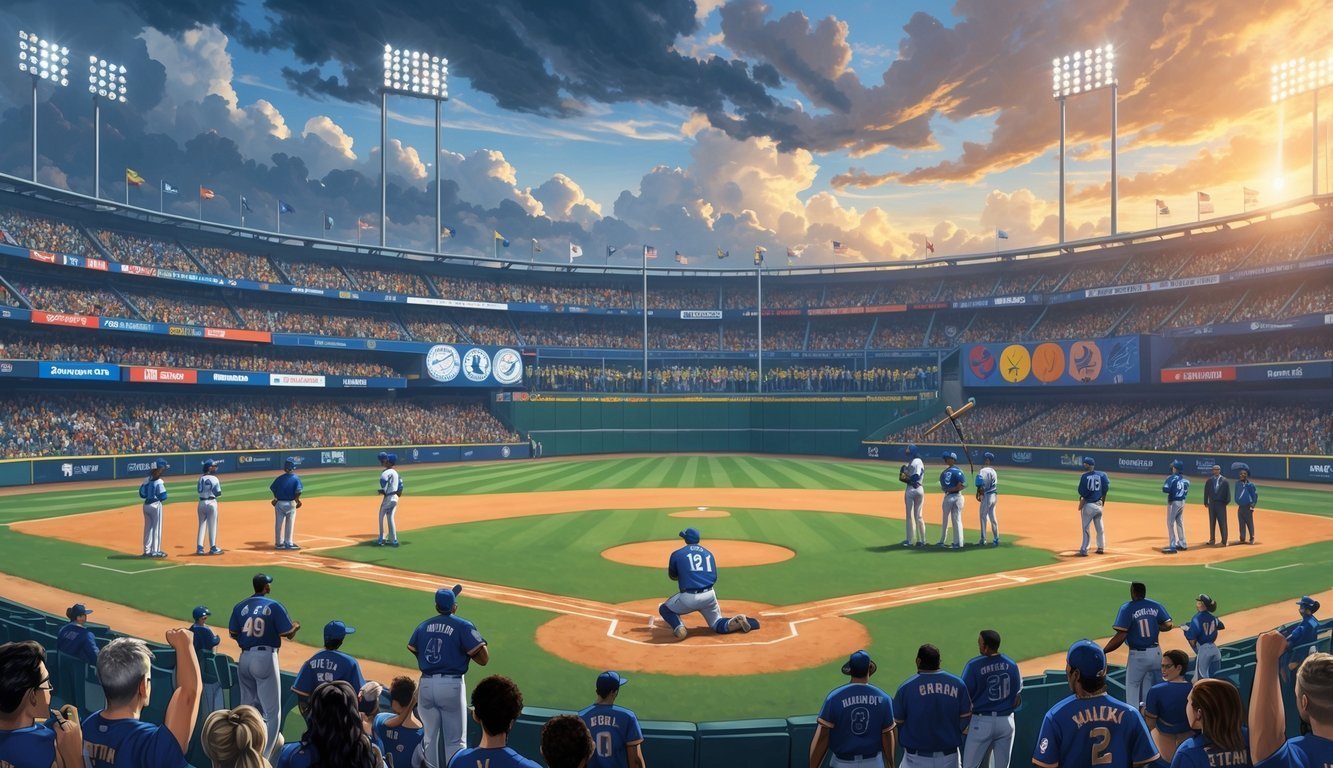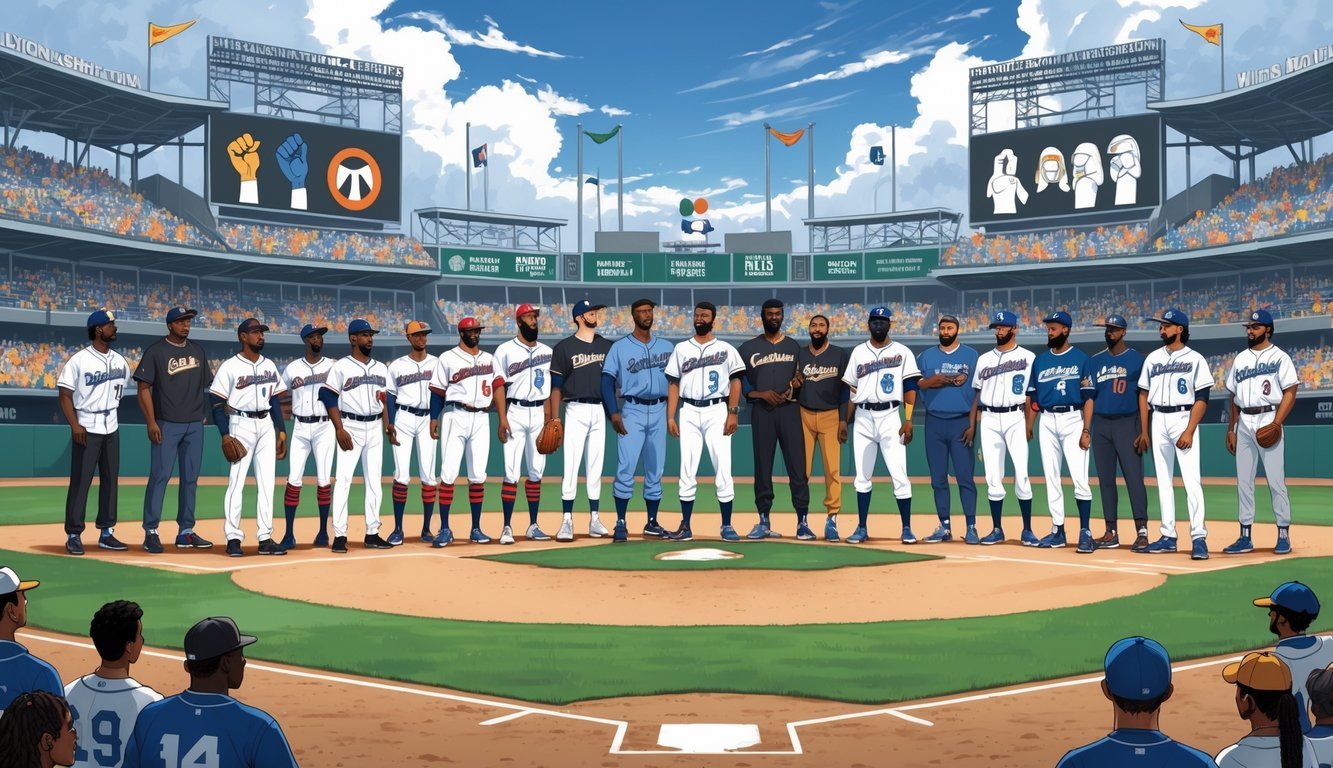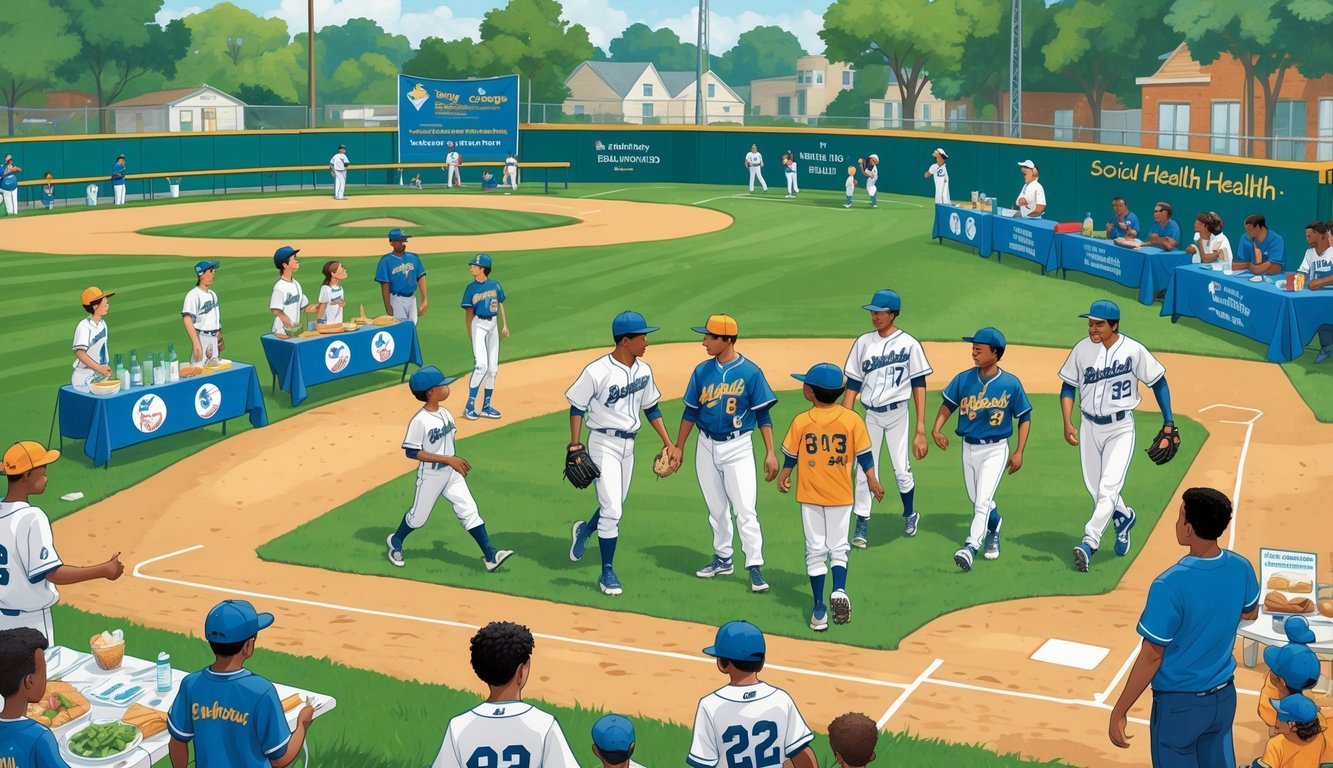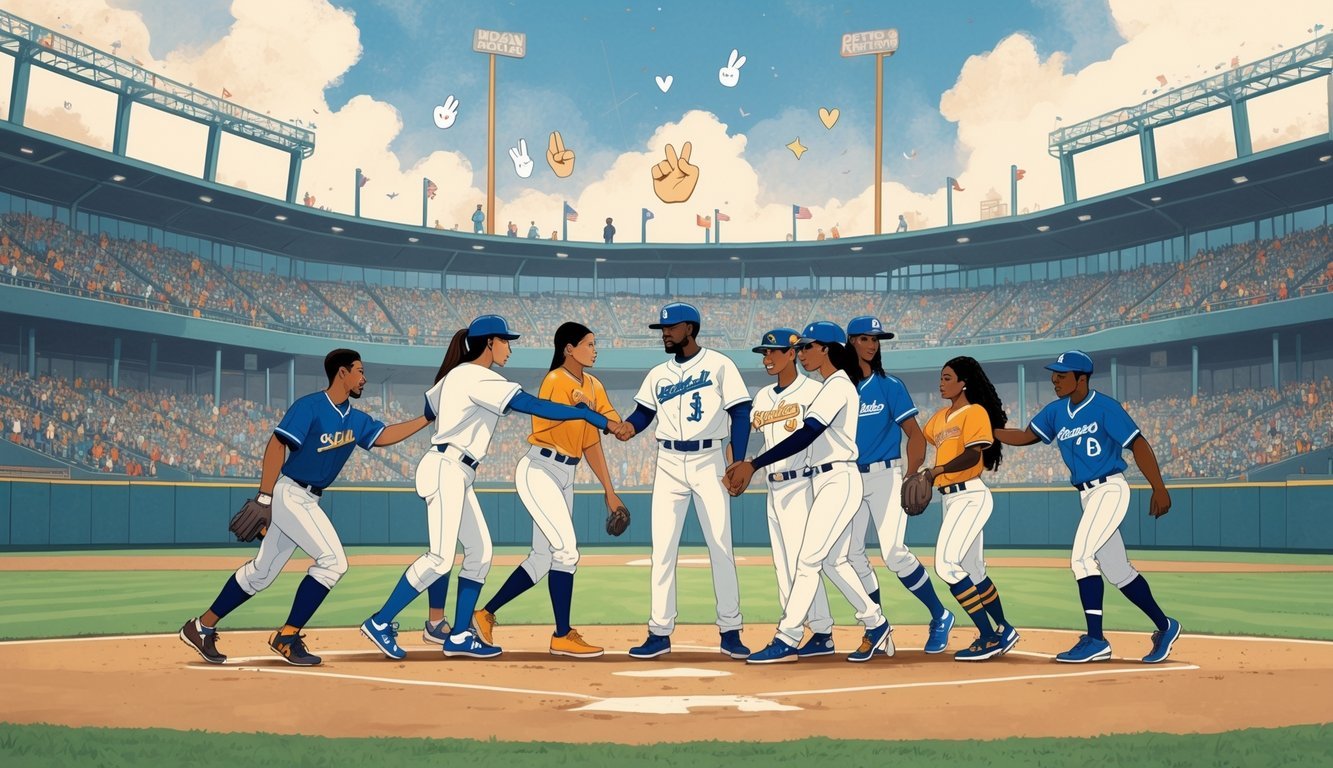PsychNewsDaily Publishers
100 Summit Drive
Burlington, MA, 01803
Telephone: (320) 349-2484
PsychNewsDaily Publishers
100 Summit Drive
Burlington, MA, 01803
Telephone: (320) 349-2484
Baseball reflects social issues like racial equality and inclusion, influencing culture, player behavior, and community engagement, while fostering dialogue on social justice and mental health.

Baseball’s always been more than just a game, hasn’t it? It reflects social issues that ripple through communities and shape how people feel about the sport.
From fights for racial equality to heated debates over justice and inclusion, these topics influence how baseball grows and how fans connect with it.
You should know that social problems shape baseball’s culture, how players behave, and even how teams work with their communities. Players and coaches now use their platforms to speak up and support causes they care about.
This shift changes how people view the game—and maybe even how it can drive positive change.
Social challenges affect everything on and off the field. Player relationships, community events, even the way fans interact with the sport get shaped by what’s happening in society.
Baseball isn’t just a pastime; it’s a mirror for real-world problems and sometimes, a way to find solutions.

Social issues like race, fairness, and inclusion have shaped baseball’s culture and legacy. The sport has grown because some people stood up to unfairness.
These changes show how baseball reflects society. It can even offer a place for unity and progress.
Baseball has worked to become more diverse and welcoming. Efforts focus on diversity, equity, and inclusion (DEI) to bring in people who were left out before.
Teams and leagues set up programs for workforce development. They want to open new roles for women, people of color, and others who faced barriers.
The Players Alliance—run by current and former players—pushes for racial justice and equality inside and outside the game. MLB runs projects in communities to tackle social issues and support young people from all backgrounds.
These efforts help you see baseball as more than just a game. It’s a place where everyone should have a voice.
Some players broke old rules and changed both baseball and society. Jackie Robinson became the first Black player in Major League Baseball, ending a color barrier that lasted for decades.
His courage inspired many and sparked real change in sports and beyond.
Other pioneers, like Roberto Clemente, didn’t just play well—they also fought for social justice. He brought attention to problems facing Latin American players and pushed for fairness.
These trailblazers show how baseball can challenge racism and exclusion. Their legacy lives on in events like Jackie Robinson Day, which reminds us that courage and persistence can change the game—and the world.
Baseball marks social justice events that bring together players, teams, and fans. Jackie Robinson Day honors progress and highlights ongoing struggles for equality.
Awards like the Roberto Clemente Award celebrate players who give back to their communities. These moments remind us that baseball is about more than just playing—it’s about respect, service, and shared humanity.
Events like these keep conversations about fairness and inclusion alive. They help tie the game to the values shaping your experience, on and off the field.

Baseball steps up to support health and community causes. Its reach goes far beyond the diamond, helping improve mental health, backing charities, empowering young people, and responding to crises.
Major League Baseball, through programs like MLB Together, takes mental health seriously. Players such as Austin Meadows and Liam Hendriks talk openly about anxiety and depression, helping reduce stigma.
MLB promotes mental health awareness month with public service announcements and partnerships with groups like the Crisis Text Line. This makes it easier for people to find support.
The league also trains staff and players to spot signs of mental distress. They’ve made mental wellness a priority, not just for athletes but for fans and communities, too.
Major League Baseball teams up with nonprofits like Boys & Girls Clubs of America to make a difference in local communities. These partnerships bring important programs right into your neighborhood.
You can join in through MLB’s volunteer efforts, like food drives and health research projects. The league backs causes such as Stand Up To Cancer, childhood cancer awareness, and domestic violence prevention.
MLB also runs programs to help people develop new skills for better jobs. All these activities show that baseball cares about more than just wins and losses.
Baseball wants to empower young people by offering education and skills through different programs. Many MLB teams work with schools and local groups to support learning and youth growth.
Players act as ambassadors in partnerships with groups like Boys & Girls Clubs. They promote bullying prevention and academic support, too.
Events like Lou Gehrig Day raise awareness about health issues and inspire young people to learn about perseverance. This helps keep kids connected to baseball and their communities.
When crises like the COVID-19 pandemic hit, baseball jumped in to help. MLB gave disaster relief funds and promoted health guidelines to keep families safe.
You may have seen MLB Green initiatives to protect the environment. The league also supports veterans and raises awareness about domestic violence as part of its broader social responsibility.
During tough times, baseball uses social media and public service announcements to get helpful information out fast. The sport tries to act quickly when people need it most.

Social issues have changed baseball in big ways. These changes touch on race, equality, and how players and fans express themselves today.
Jackie Robinson became the first Black player in Major League Baseball in the modern era. He broke racial segregation in the sport.
His arrival opened doors for other Black players and started a slow shift toward more diversity in teams and among fans. Robinson’s courage also inspired social change outside baseball.
Baseball reflected racial tensions and helped raise awareness about civil rights. Players and fans saw the sport as a place to challenge segregation.
Some athletes spoke out against racial injustice, spreading important civil rights messages.
Baseball has worked to include players from more backgrounds, though it’s faced problems like gambling, cheating, and violence.
Teams and leagues now push harder for fairness and inclusion than they did in the past.
Social media gives players a way to connect directly with fans, share opinions, and take part in social causes.
It changes how people follow games and react to events—sometimes for better, sometimes not.
Movements like civil rights and gender equality have shaped baseball’s rules and culture. Breaking the color line and supporting women’s leagues show how society impacts the sport.
Players sometimes use their platform for bigger social issues, whether through protests or public statements.
Jackie Robinson broke into MLB, and that changed everything. Players have also spoken up about racism, challenging old attitudes in the sport.
People in baseball have pushed to end discrimination against women and minorities. These shifts didn’t just stay in the ballpark—they often echoed changes happening in society too.